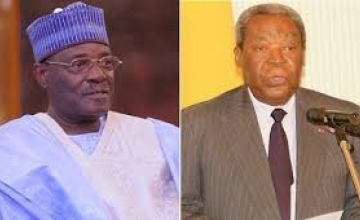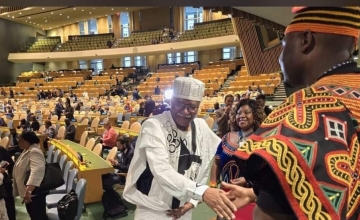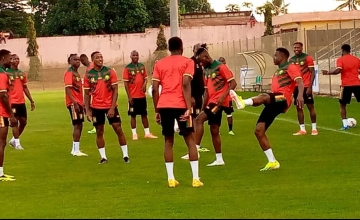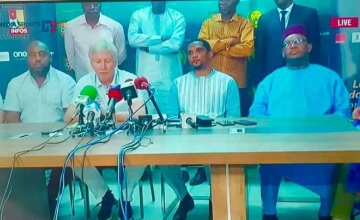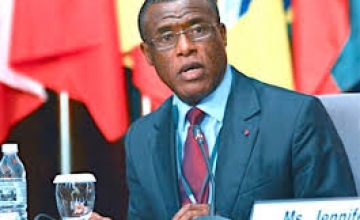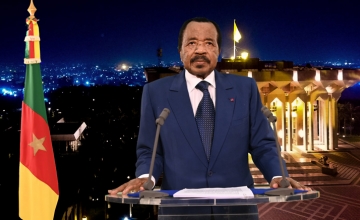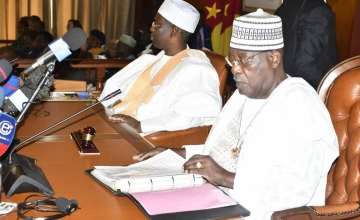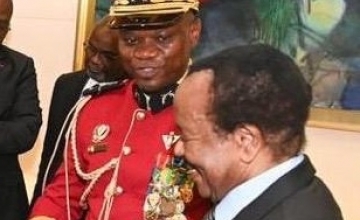
Although he was given a voice at last year’s Major National Dialogue, Dr. Simon Munzu insists that this far, there is nothing special in the much-talked-about special status for the North West and South West regions which was intended to solve the on-going Anglophone crisis.
The federalist-champion told The SUN’s Managing Editor, Wasso Norbert Binde June 5, 2020, that they have all held their breath and waited for too long for the Government to come up with the content of the special status.
“With deep regret, I would say, nothing! Remember that the Major National Dialogue was organized specifically to examine ‘the situation in the North West and South West regions of Cameroon’. Its overall objective, as announced by the Head of State who convened it, was to find a lasting solution to the crisis in these two regions so that they could return to normalcy,” said Munzu. “After several days of deliberation in a forum organized by the Government, it was officially recognized, for the first time, that there was an Anglophone problem.”
Participants at the Major National Dialogue, Munzu says, recommended that to resolve this Anglophone problem, the two Anglophone regions should be granted ‘special status’. In implementing the recommendations of the Major National Dialogue, the government was given a blank check to give content to the specific recommendation concerning ‘special status’.
“We all held our breath and waited with great expectation for the Government to come up with the content. We ended up being very disappointed. I have read the Law on Decentralisation that was promulgated on 24 December 2019 over and over and over again. It contains some provisions in Part V of Book IV entitled ‘Special Status of the North West and South West Regions’. I regret to say that these provisions do not contain anything that confers any meaningful ‘special status’ on the two Anglophone regions. It is hard to see how they can lead to the resolution of the Anglophone problem,” Munzu explains.
His words: “On the devolution of powers, the two Anglophone regions do not have any powers different from those enjoyed by their Francophone counterparts. The regional councils in the Anglophone regions comprise 90 members that are supposed to reflect the sociological composition of the region, exactly as is the case with those in the Francophone regions. The only difference is that, in the Anglophone regions, the law says that 20 out of those 90 regional councillors must be traditional chiefs, whereas in the Francophone regions the number of traditional chiefs is left to be decided by each council according to its local sociological realities.
“Second, while, in the eight Francophone regions, all the 90 regional councillors meet together and deliberate as a single chamber, in the two Anglophone regions 70 of the regional councillors meet separately as the ‘House of Divisional Representatives’ while the remaining 20, all of whom are traditional rulers, meet separately as the ‘House of Chiefs’. This is to create the illusion that in the two Anglophone regions, we now have a ‘House of Assembly’ and a ‘House of Chiefs’ as we had in the days of the Federation. This is a mockery of the people of these two regions.
“The other distinguishing feature, one which is just as meaningless as the others, is the introduction for the two Anglophone regions of a state official who is appointed, and can be dismissed, by the President of the Republic, called the Public Independent Conciliator who will be charged mainly with the examination and amicable settlement of disputes between citizens and regional and municipal council administrations.
“In every other respect, including the supervision and control by Governors and Senior Divisional Officers as ‘representatives of the State’, the two Anglophone regions are treated exactly the same as the eight Francophone regions. It is difficult to see how all this can contribute to resolving the Anglophone problem and ending the four-year-old crisis in the South West and North West regions.
“The purpose of ‘special status’ for the Anglophone regions ought to be to grant these two regions a sufficient degree of administrative and financial autonomy to enable them to run their own systems of education, justice, police, etc. in accordance with their own heritage. The aim should be to put an end to the marginalization, domination, and assimilation of these two regions by ‘La Republique du Cameroun’.”

